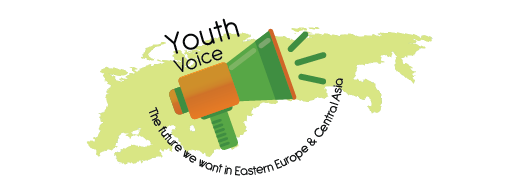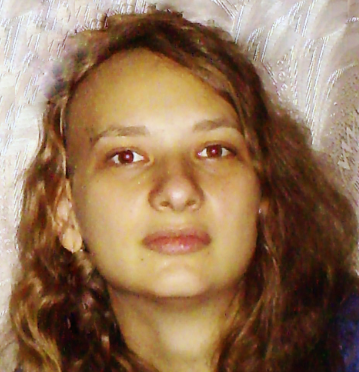Child marriage is defined by UNICEF as “a formal marriage or informal union before age 18 which can lead to a lifetime of disadvantage and deprivation. “
Child marriage is strongly related to gender inequality, but it affects both boys and girls. Child marriage happens today, even in Europe, and it is still a serious issue, according to Girls not Brides, over 700 million alive today were married as children.
It is important to mention that child marriage is not just under-age marriage, but most importantly it is non-consensual and forced marriage. Children do not choose to marry and don’t have a word to say in the choice of their partners. Plan UK estimates nearly 15 million girls might be facing this harsh reality at this very moment.
Child marriage is a violation of many human rights,to mention only a few, right to Private Life, right to Health and Reproductive Health, right to Identity and Free Will. This abuse directly affects the child’s Health and Mental Health and leads to catastrophic effects in all areas of life including Education,Social Status,and Relationships.
The child who is forced into marriage is no longer a child, in rights or privileges. Nor has he or she many chances to become a liberated adult, given the lack of choices in early years and the life path which is imposed to him/her.
Yet, child marriage is still considered normal in many communities and many people survive it, perpetuating it and forcing the new generations to submit to it. Does that mean that child marriage is indeed connected to specific religious and traditional practices ?
Although this might be true for many affected countries and regions, child marriage is first and foremost a matter of gender inequality and a direct consequence of the existing low social status of women and children in a given society.
The issue of child marriage is not only about tradition,but also and more importantly, about the way we see and understand to treat other human beings.
Thus, in a society where it is acceptable to give away human beings in exchange of money or goods, child marriage is seen as a “normal” phenomena, given the fact that children are considered “assets”with little power to decide for themselves.
Although child marriage is usually associated with developing countries or Europe-based specific ethnic minorities such as Roma Gypsy, in practice we see the same root causes -gender inequality, low level of education,children and women’ social vulnerability-to produce different, yet similar in terms of outcome and impact, abuses in modern secular societies, child trafficking and forced prostitution being just one example.
Indeed, the human being is still seen as a commodity in many developed and rich countries and the fact that in these places, slavery is only the exception, not the rule, doesn’t make the abuse less reprehensible. Although the local, community-enforced early marriage is rarely compared to the cross-border human trafficking organized crime operations, the reality is that children are sold and bought everywhere around the world, and this has little to do with religious faith or the lack of it.
Indeed, no religion or cultural practice demands specifically and intentionally the suffering of other human beings, yet existing traditions may be used as an excuse for further abusing those who are already excluded. Similarly, we see wealthy and educated societies accepting the fact that certain social categories (such as migrants or the extremely poor) will never enjoy full freedom and decision-makers taking it for granted that these persons will become victims of violence and abuse. With FGM happening in countries such as UK or The Netherlands, it is clear that Europe doesn’t take equal care of all its girls.
Back to the issue of child marriage, most experts would agree that the practice will last as long as extreme poverty, low education and gender discrimination will continue to prevail in the communities who traditionally marry their children as young as 5 years-old .However, the huge existing social and economical inequalities no longer make urban and developed communities safer places to live in. Giving up the tribe for joining the mafia is indeed not a progress for a young male migrant. Nor is it a huge achievement for a girl to go from being forced to become the wife of a single man towards being coerced to sell her body to many others ! The lack of options is indeed what makes violence and abuse prevail in so many places around the world. Furthermore, corruption,indifference and lack of political will make it possible to preserve existing inequalities even whenever moving from village to city, from faith-based leadership to secularism, or from the Middle East to Europe.
So is it really up to us to end child marriage ? Could we as young people explain our leaders that every time they accept to be “bought”( bribed, corrupted) they also agree to sell other people, those whom they should have protected, into one or another form of slavery ? Indeed, corruption is also a matter of selling and buying, and probably one of the most important reasons why child marriage still happens, even when there are laws to forbid it.
It doesn’t matter if it’s a poor girl “worth” only a few cows,or a high dignitary who agrees to sell his conscience for several millions of Euro, the truth is that a human being should not have a price.
It is indeed our responsibility, no matter where we live, and regardless of our race or faith,not to ever accept such a compromise, money in exchange of persons. Equally important, we should not invest precious time and energy in useless ideological debates concerning religions and traditions, as it is far more important to work together to protect children.
So join us and help us make our voices heard !
Romania
She is a Romanian psychologist and journalist passionate about gender equality and women and children`rights. She loves writing and over the years won several international prizes in essay competitions.Her dream is to be able to contribute to a real and visible change by combining Activism, Arts and Psychosocial Therapy. Luciana is a member of YouAct – European Youth Network on Sexual and Reproductive Rights, http://youact.org/




Get Social